Confirmed speakers
– Dr. Mikael Altun, Karolinska Institute, Sweden
Working with degradation and protein instability in drug discovery
– Prof. Line Bourel, University of Strasbourg, France
Fighting against multiresistant fungal infections – a state of the art update and the beginning of a chemical biology study of synthetic antifungal drugs
– Prof. Stefania Butini, Università degli Studi di Siena, Italy
Novel inhibitors of the endocannabinoids’ catabolic enzymes as potential therapeutics for epilepsy and neuroinflammatory conditions
– Prof. Paola Costi, University of Modena and Reggio Emilia, Italy
The One Health concept in antiparasitic drug discovery, what matters?
– Prof. Dr. Michael Decker, Universität Würzburg, Germany
Chemical Neuroscience for Alzheimer’s Disease – Hybrid Molecules and Photopharmacology
– Assoc. Prof. Antimo Gioiello, Università degli Studi di Perugia, Italy
Accelerating Medicinal Chemistry by Flow-Enhanced Synthesis
– Prof. Dr. Diego Muñoz-Torrero, Universitat de Barcelona, Spain
Serendipity and drug-unlikeness in the discovery of a new antimalarial agent
– Assist. Prof. Tiago Rodrigues, University of Lisbon, Portugal
Machine learning to accelerate the chemical sciences
CVs in Brief…
| Dr. Mikael Altun Karolinska Institute, Sweden | Mikael Altun is Associate Professor of Cell and Molecular Biology at the Karolinska Institute. He began his training at the Karolinska Institute. During his medical studies and a year at Harvard Medical School, he discovered his passion for science and obtained his Master’s degree in Medicine (2001). He completed his doctoral training at three universities, the Karolinska Institutet, Harvard Medical School and University of Oxford (2007). After graduation, he completed two postdoctoral programs, one at Karolinska Institutet in the field of cancer biology with Prof. M.G. Masucci (2008-2009) and the second at the University of Oxford in the field of Chemical Biology with Prof. B.M. Kessler (2009-2011), before establishing his research group at Karolinska Institutet (2012) and as Assistant Professor (2014) and Group Leader at the Science for Life Laboratory (SciLifeLab) – an important hub in Sweden’s national bioscience infrastructure (2014). In 2020, he was appointed Associate Professor of Cell and Molecular Biology. He is known for his basic and translational research in the field of cellular purification and signaling machinery, the ubiquitin-proteasome system (UPS). Because UPS can be so versatile, he is now investigating how UPS could be “hijacked” using molecules to direct proteins for destruction in “diseased” cells. This could lead to new therapeutic strategies for people with cancer. The lab is involved in the development of novel assays and molecules for drug and therapy discovery to develop a better strategy to fight diseases that are resistant to other therapeutic options. |
| Prof. Line Bourel University of Strasbourg, France 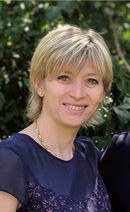 | Line Bourel is a professor of medicinal chemistry at the University of Strasbourg. With a joint degree in pharmacy and organic chemistry, she completed her training with a PhD in combinatorial chemistry under the supervision of Professors André Tartar and Benoît Déprez at the Pasteur Institute of Lille (France), in collaboration with Glaxo (Dr. François Hyafil) in 1994-1997. After a short working period at Cerep S.A. (now Eurofins), she became an assistant professor in medicinal chemistry at the University of Lille in Professor Hélène Gras-Masse’s group in September 1997. A post-doctoral internship at the University of Southampton (United Kingdom) with Professor A. Ganesan in 2001, the defense of her habilitation to conduct research in 2003 and a 6-month leave for research preceded her promotional transfer to the University of Strasbourg in 2006. For the three last decades, Line Bourel has transmitted her knowledge and expertise situated at the interface between pharmacy and chemistry. She has evolved several times in the research themes she has developed both in Lille and Strasbourg (combinatorial and heterocyclic chemistry, automated synthesis, chemical ligation, vectorization…), while remaining at the interface between chemistry and biology, often in collaboration with the industrial world. The common denominator of her research is the use of chemistry to address scientific questions arising in life sciences and pharmacy with original synthetic tools. In addition to a tropism towards methodology (solid phase, physico-chemistry of nanoparticles…), her fields of investigation are oncology (targeting of anticancer drugs, inhibition of neoangiogenesis, synthetic anti-tumor vaccines) and infectiology, in terms of therapeutics (antiparasitic and antituberculotic agents), fundamentals (studies of viral fusion and intracellular trafficking) and prevention (immunoadjuvants, synthetic lipopeptide- and nanoparticle-based vaccines). Line Bourel currently chairs the French Association of Teachers in Medicinal Chemistry (AFECT). In 2022, she was elected a national correspondent of the French Academy of Pharmacy, while maintaining a research activity within a CNRS/Unistra labelled team at the Faculty of Pharmacy (UMR 7200 LIT). The present talk deals with her new field of investigation which is the chemical biology study of synthetic antifungal drugs. |
| Prof. Stefania Butini Università degli Studi di Siena, Italia 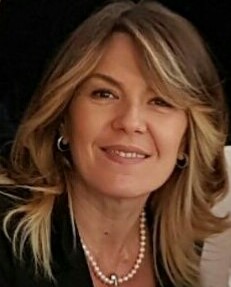 | Prof Stefania Butini is associate professor of medicinal chemistry since 2015. She earned the degree of chemistry and pharmaceutical technology at the University of Siena in 1997 and a PhD in pharmaceutical sciences at the same University in 2000. In 1999-2000 she spent a period of internship at the University of Groningen under the supervision of Prof H.W. Wikström working on Parkinson Disease and the development of dopamine D3 receptor modulators. In 2004 she became permanent senior researcher at the University of Siena. Her research activity (described in >150 publications) focuses on the development of bioactive compounds with a special emphasis on CNS diseases, antimalarial, and antitumor agents. Exploration of chemistry and biology of synthetic organic molecules with therapeutic potential in neurodegenerative and neuropsychiatric diseases is a key part her research interests that include target selection, rational design of innovative drugs, discovery of new synthetic methodologies, and general strategies for synthesis, bioinformatics and the study of structure-function relationships. She is experienced as Research Units’ coordinator in National and International polycentric research projects dealing with drug development in various fields. |
| Prof. Paola Costi University of Modena and Reggio Emilia, Italy 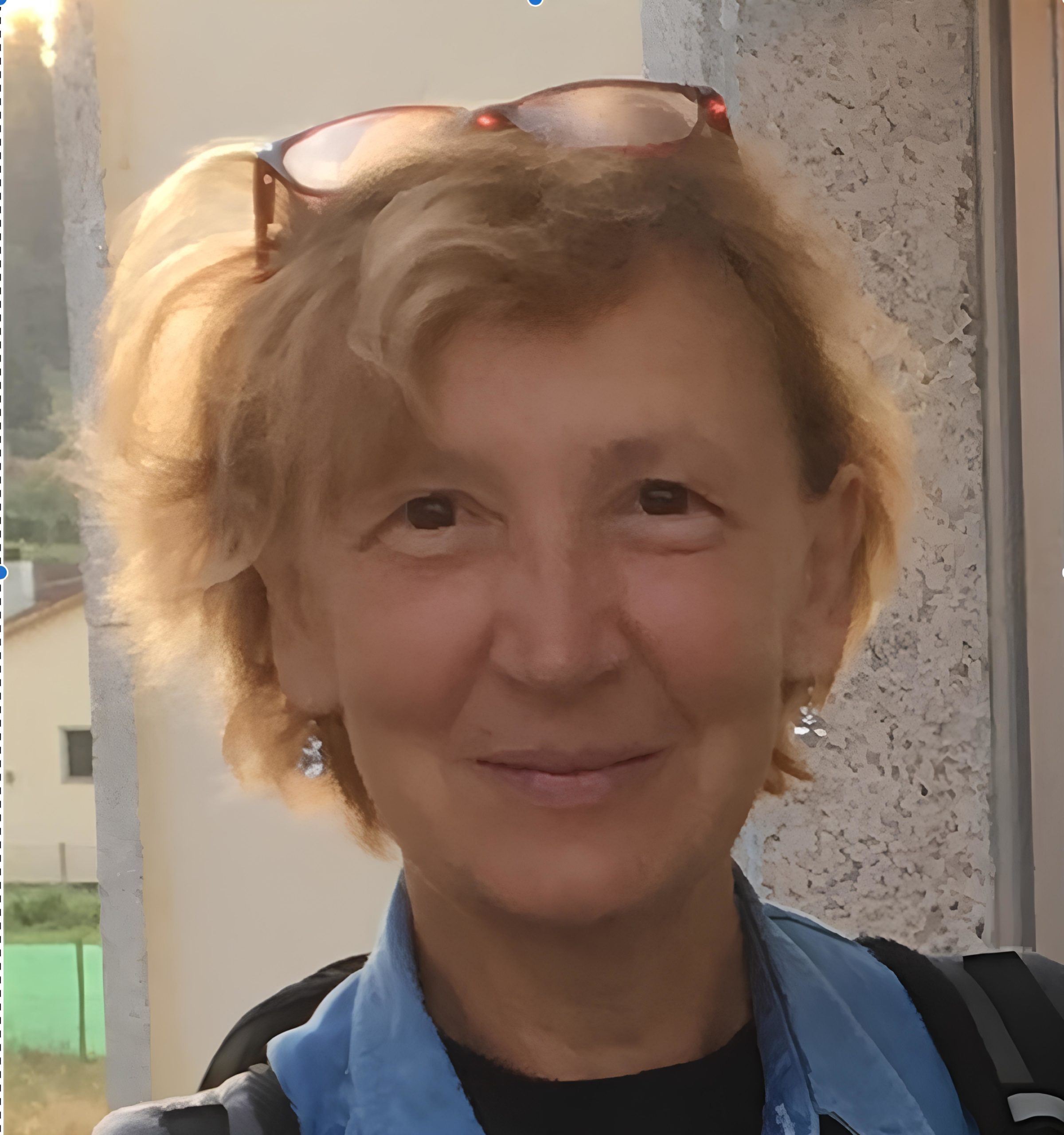 | Prof. Maria Paola Costi is the team leader of the Drug discovery and biotechnology lab at the University of Modena and Reggio Emilia. PhD in Chimica del Farmaco (1989) and visiting professor at UCSF in different periods 1991-1996. Her expertise is in the field of the design of medicinal chemistry and development of chemical biology applications (fluorescence, functional/structural technologies, proteomics). Her international collaborative research work focuses on folate dependent enzymes in cancer, leading to the identification of dissociative inhibitors of homodimeric enzymes. She also targets folate metabolism in parasitic diseases. She is collaborating to the development of one anti-leishmania drug. About 200 among papers, book chapters in international journals, and patents. Member of the MITO oncology group, translational science, and other networks and foundation (Paul Erlich Network, ESF). She has coordinated of several European projects and other collaborative projects such as, Association of Italian Cancer Research (AIRC) funded projects and more recently she is the Chair of the COST Action on OneHealthdrugs (CA21111). Co-founder of two start-up (TydockPharma srl and Quadrel srl). |
| Prof. Dr. Michael Decker Universität Würzburg, Germany 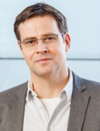 | Michael Decker has studied chemistry at University of Bonn, Germany, and Cambridge, UK. After his PhD in Medicinal Chemistry at Bonn University on dopamine receptor ligands, he worked in a company. He obtained his teaching qualification (“habilitation”) in Pharmacy from University of Jena, Germany. He was Visiting Scientist at McLean Hospital, Harvard Medical School, and lecturer at Queen’s University Belfast, UK, before he was appointed Professor for Pharmaceutical/Medicinal Chemistry at Würzburg University, Germany. His research interests are focused on Chemical Neuroscience, dealing with the development of PET ligands for diagnostics of cardiac and neuroinflammation, hybrid molecules against Alzheimer’s disease, natural products’ neuroprotective properties and photopharmacology. |
| Assoc. Prof. Antimo Gioiello Università degli Studi di Perugia, Italia 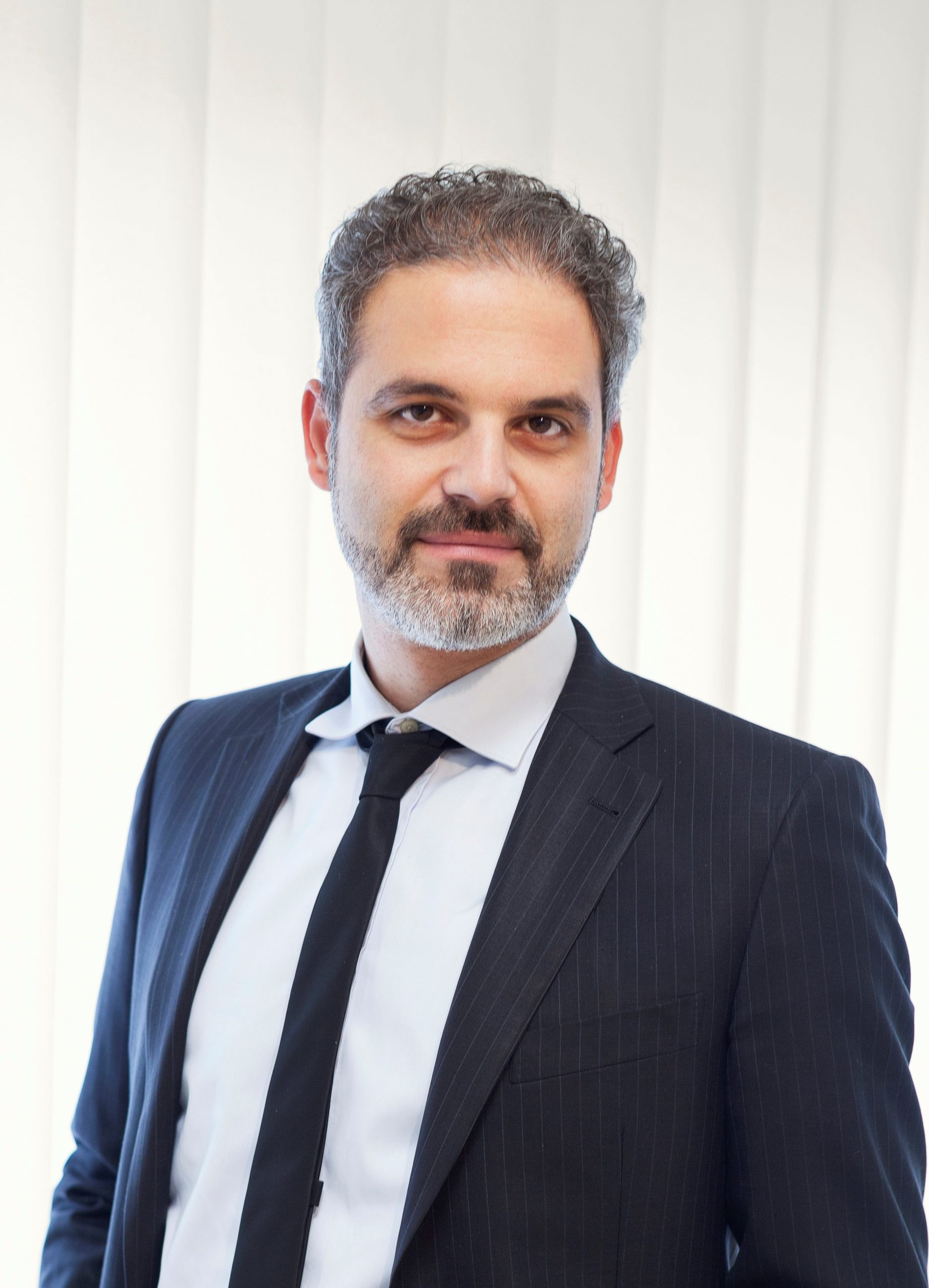 | Antimo Gioiello is Associate Professor at the Department of Pharmaceutical Sciences of the University of Perugia (Italy). After studying organic synthesis (1996-2001), he obtained his PhD in medicinal chemistry at the University of Perugia (2005). He was visiting scientist at the University of Western Brittany (UBO, France), University of Vienna (Austria) and Glaxo Smith Kline (UK). Antimo has led several academic and industrial collaborations and his work experience spans various stages of early drug discovery mainly in the area of liver, CNS and metabolic diseases including cancer. His main research interests include steroid chemistry, the discovery of NCEs and chemical probes for steroid receptors, and the development of enabling synthesis and chemical technologies for lead discovery and process optimization. He is also a co-founder of TES Pharma, a research-based biopharmaceutical company focussed on delivering first in class preclinical candidates for novel therapeutic targets. Antimo Gioiello has co-authored more than 100 scientific papers published in international peer-review journals, and holds several patents in process chemistry and bile acid drug discovery. In 2018, he was acknowledged as Full Professor in Medicinal Chemistry in the framework of the national scientific habilitation process (ASN). Currently, Antimo is member of the Board of Directors at the University of Perugia, member of the European School in Medicinal Chemistry scientific committee, responsible for the drug discovery research programs at the University of Perugia, and serves as President of the Italian Chemical Society – Umbria section. |
| Prof. Dr. Diego Muñoz-Torrero Universitat de Barcelona, Spain | Diego Muñoz-Torrero graduated in Pharmacy at University of Barcelona (UB, 1989) and received the PhD degree (Medicinal Chemistry), with honors (UB, 1994). For 2 years (01/1996 to 12/1997) he was a postdoctoral researcher at Institut für Organische Chemie of University of Göttingen (Germany). In 2001 he was appointed Associate Professor of Organic and Medicinal Chemistry at the Faculty of Pharmacy and Food Sciences (UB), and since 2022 he is full Professor. He was Vice-Dean of Research of the Faculty of Pharmacy and Food Sciences (UB) from 11/2009 to 03/2018, where is currently Head of the Laboratory of Medicinal Chemistry and member of the Governing Board of the Institute of Biomedicine of the UB since its founding in 2007. His research focuses on the development of new drugs against Alzheimer’s disease, malaria and cancer. He is author of 118 scientific articles (> 4800 citations, h=37, Google Scholar), 7 book chapters and 139 contributions to congresses (20 invited lectures, 3 international conference chairs). He has collaborated with numerous national and international academic groups (from Univ. Bologna, Würzburg, California Davis, Bradford, Rouen, Rome, Weizmann Institute of Science, among others) and with several chemico-pharmaceutical companies. He has worked closely with the TTO of UB (FBG), to transfer his research results to pharma companies, with 11 patents filed so far, one of them transferred to the spin-off Oniria Therapeutics. He has supervised 12 PhD Theses and has also contributed to the training of other PhD students as Invited Professor (Univ. Caen, 2023; Univ. Rouen, 2014; Univ. Bahía Blanca, 2006), in Doctorate/Master Programs (Univ. Basque Country, 2021; UB, 2020), Summer Schools (UB jointly with Univ. Montréal, Toulouse and Ribeirao Preto, 2023; Univ. Federal Rio Janeiro, 2022; Univ. Concepción, 2021) and BIPs (Univ. Porto jointly with UB, Chieti-Pescara, Athens, Ankara and Charles Univ., 2023). He has also supervised 15 master theses and 42 foreign students of mobility programs (Erasmus). He is a member of the Spanish Society of Medicinal Chemistry (SEQT) since 2009 and the Spanish Royal Society of Chemistry (RSEQ), Organic Chemistry Division, since 2004. |
| Assist. Prof. Tiago Rodrigues University of Lisbon, Portugal 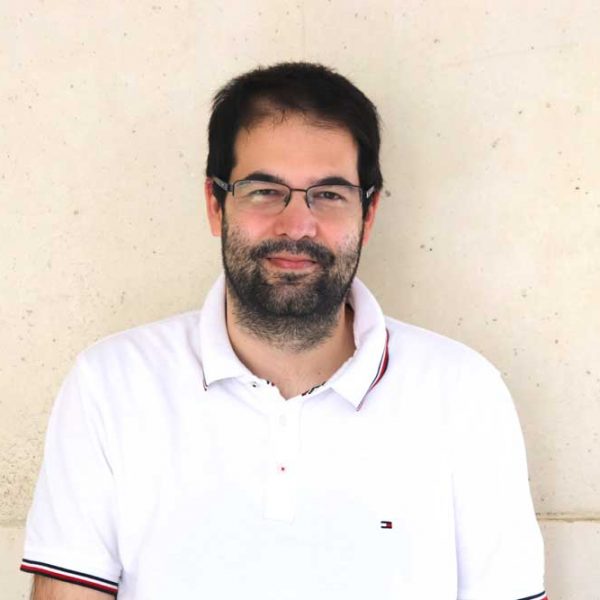 | Tiago Rodrigues obtained a PharmD at the Faculty of Pharmacy, University of Lisbon (2006) and a PhD in Medicinal Chemistry from the University of Lisbon (2010). After a postdoctoral stay at the ETH Zurich (2011-2015), where he was also a Lecturer (2012-2015), he returned to Portugal as a senior scientist at the Instituto de Medicina Molecular. He was an Invited Assistant Professor at the Faculty of Pharmacy, University of Lisbon (2015-2020) and a Group Leader since 2020. In 2019 he co-founded TargTex, a VC-backed biotech company that develops life-changing therapies for glioblastoma multiforme. He has supervised or co-supervised >25 BSc, MSc and PhD students and postdocs from multiple cultural and scientific backgrounds, and currently supervises a PhD student. He has published 60 peer-reviewed papers in top tier journals (eg. Nature Chemistry, Nature Reviews Chemistry, JACS, PNAS, Angew Chem Int Ed, Chem Sci, ACS Cent Sci, among others), has an h-index of 25, filed 2 patents, contributed 3 book chapters, guest edited for Bioorganic & Medicinal Chemistry and delivered >70 talks. His work has been widely recognized through multiple national and international awards, highlighted in both scientific outlets and social media (e.g. national TV). His research interests lie at the interface of medicinal chemistry, chemical biology, cheminformatics, targeted therapeutics and machine learning/artificial intelligence. |